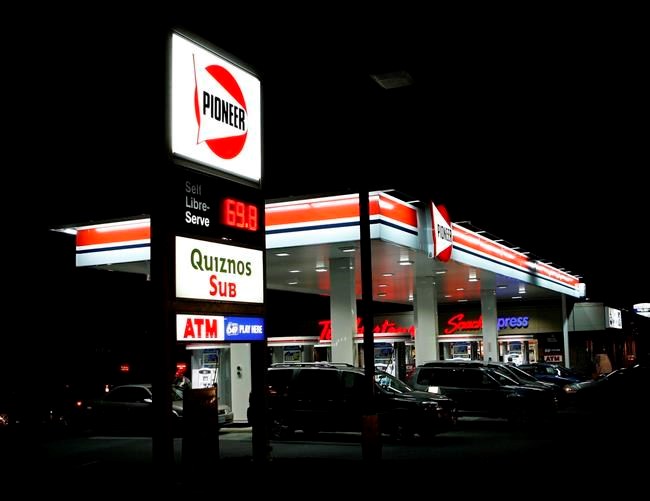CALGARY — The internal strife at fuel retailer Parkland Corp.continues as the Calgary-based company rejected a call by its largest shareholder to consider a potential sale of the business.
It's the latest development in Parkland's months-long dispute with Simpson Oil, which owns about 20 per cent of Parkland shares but no longer has a seat on the fuel retailer's board after the resignation of two Simpson-nominated directors in December.
Simpson did not provide a reason for the resignations at the time, but last week sent a letter to Parkland's board calling on it to immediately "commence a review of strategic alternatives, including a potential transition of the company to new ownership."
In a news release, Simpson — which is based in the Cayman Islands — said such a review is "essential to optimize Parkland's operational and financial performance."
"As a supportive partner, we have consistently encouraged the company to maximize value and returns to shareholders. The results have fallen short of our expectations," Simpson Oil stated.
Parkland shot backlate Sunday night, saying the current call for a strategic review is an attempt by Simpson "to circumvent established corporate governance without considering the interests of all shareholders."
Parkland added that Simpson's move violates the terms of a 2019 governance agreement in which Simpson agreed to a range of provisions to ensure it would not be able to exercise undue influence and control over Parkland in pursuing its own interests.
"Parkland will enforce the terms of the governance agreement while remaining willing to engage with Simpson," Parkland stated.
Simpson Oil is the previous owner of Caribbean fuel retailer Sol, which has since been acquired by Parkland. Simpson has been a Parkland shareholder since 2017.
Simpson's call for a strategic review of Parkland marks the second time in just over a year that a shareholder has gone public with concerns about the company's direction.
Last March, U.S.-based activist investor Engine Capital LP publicly urged Parkland to get rid of what it called "non-core assets'' and become a pure-play fuel and convenience retailer.
While Parkland rejected Engine's suggestion that it sell or spin off its Burnaby, saąúĽĘ´«Ă˝ refinery, the company did make other changes including putting a number of other assets, such as certain retail locations, up for sale and making changes to its board of directors.
In a research note Sunday, CIBC Capital Markets analyst Kevin Chiang said Simpson Oil's public call for a strategic review suggests the discussions between Parkland and its largest shareholder have reached an "impasse."
He added he agrees with Simpson's assessment that Parkland has underperformed the broader market over the last few years, and said that Simpson taking a more activist approach could be a good thing.
"While we will need to see how (Simpson and Parkland) work through their issues, we view this recent development as a positive for (Parkland's) share price," Chiang wrote.
Parkland's share price has been on a downward slide since February, but as of midday Monday was up more than five per cent to $42.99.
"In our view, the tension between Parkland and its largest shareholder has created an overhang given elevated uncertainty, which we believe has been the key driver of recent underperformance," said Luke Davis of RBC Capital Markets in a note.
This report by The Canadian Press was first published April 15, 2024.
Companies in this story: (TSX:PKI)
Amanda Stephenson, The Canadian Press



